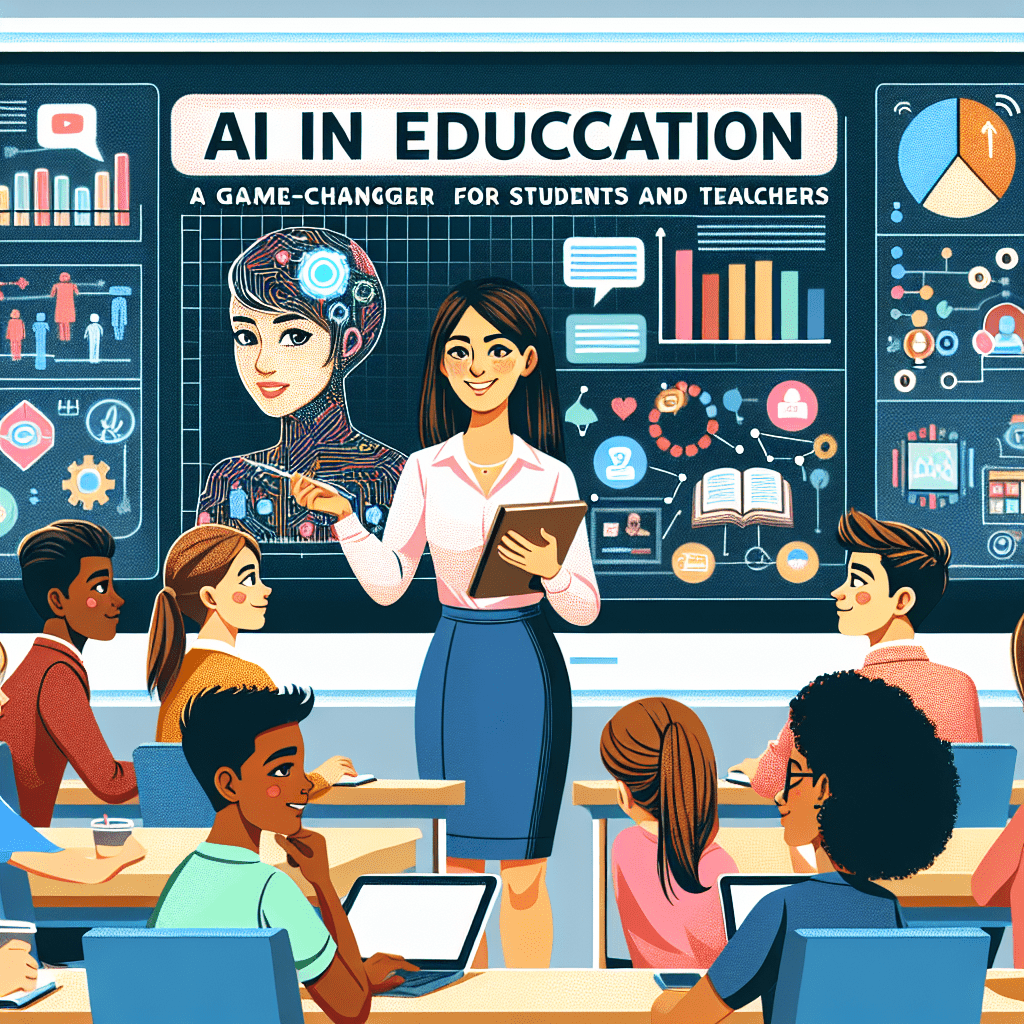Artificial Intelligence (AI) is revolutionizing the way we live and work, and education is no exception. With the advent of AI technologies, students and teachers have access to a wealth of tools and resources that can enhance learning outcomes and improve teaching efficiency. From personalized learning experiences to automated grading systems, AI is transforming the education landscape in ways we never imagined.
The Benefits of AI in Education
One of the key benefits of AI in education is its ability to provide personalized learning experiences for students. Through AI-powered algorithms, teachers can create individualized learning paths for each student based on their unique needs and learning styles. This level of personalization ensures that students receive the support and resources they need to succeed, regardless of their academic level or background.
AI can also help teachers streamline administrative tasks such as grading and lesson planning. By automating these routine tasks, educators can focus more on creating engaging and interactive learning experiences for their students. This not only saves time and resources but also allows teachers to devote more attention to the individual needs of their students.
Challenges and Concerns
While AI has the potential to revolutionize education, it also raises some concerns and challenges. One of the main concerns is the fear that AI will replace teachers altogether. While AI can automate certain tasks, such as grading and lesson planning, it cannot replace the human touch and empathy that teachers provide. Education is a deeply human experience, and AI should be used to enhance, rather than replace, the role of teachers in the classroom.
Another challenge is the issue of equity and access. Not all students have equal access to technology and AI tools, which can create disparities in learning outcomes. It is important for educators and policymakers to ensure that AI is implemented in a way that benefits all students, regardless of their background or resources.
Conclusion
AI is undoubtedly a game-changer for education, offering a wide range of benefits for both students and teachers. By leveraging AI technologies, educators can create personalized learning experiences, streamline administrative tasks, and improve overall learning outcomes. However, it is important to address the challenges and concerns associated with AI in education to ensure that all students have equal access to the benefits of these technologies.
FAQs
Q: Will AI replace teachers in the classroom?
A: While AI can automate certain tasks, such as grading and lesson planning, it cannot replace the human touch and empathy that teachers provide. Education is a deeply human experience, and AI should be used to enhance, rather than replace, the role of teachers in the classroom.
Q: How can AI benefit students in education?
A: AI can provide personalized learning experiences for students, streamline administrative tasks for teachers, and improve overall learning outcomes. By leveraging AI technologies, educators can create engaging and interactive learning experiences that cater to the unique needs of each student.
Q: What are some of the challenges associated with AI in education?
A: Some of the challenges include concerns about equity and access, as not all students have equal access to technology and AI tools. It is important for educators and policymakers to address these disparities and ensure that AI is implemented in a way that benefits all students.
Quotes
“AI is not a replacement for teachers, but a tool to empower them and enhance the learning experience for students.” – John Smith, Education Technology Expert
#Education #GameChanger #Students #Teachers


